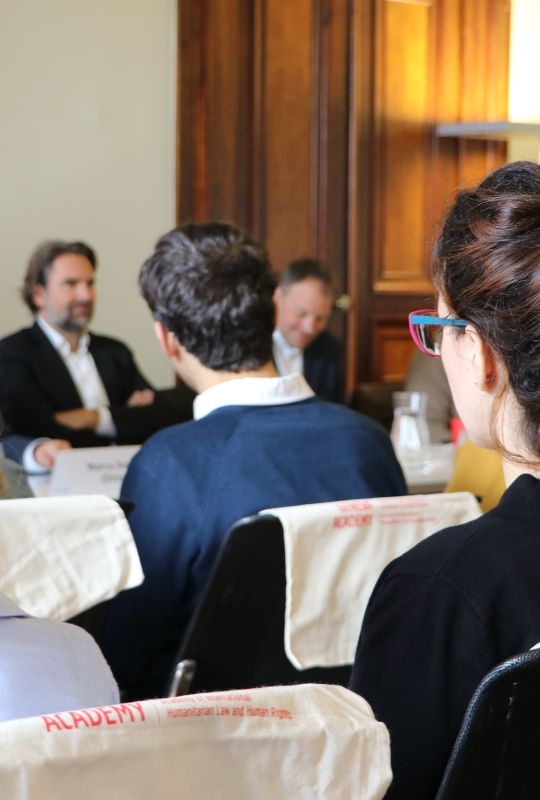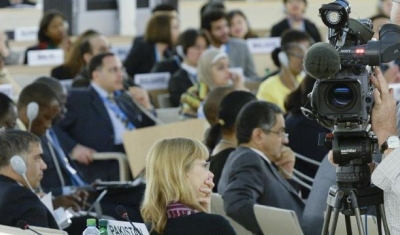22 September 2020
The Geneva Academy team – Charlotte Volet and Sonali Wanigabaduge, enrolled in our Master of Advanced Studies in Transitional Justice, Human Rights and the Rule of Law (MTJ) during the 2019–2020 academic year – successfully qualified for the oral rounds of the Nelson Mandela moot court.
Our Teaching Assistant Pavle Kilibarda is coaching the team. As such, he oversaw the team’s preparation for the written submission and is now working with Charlotte and Sonali for the oral rounds and the presentation of arguments.
In order to qualify for the oral rounds, Charlotte and Sonali had to write a long and detailed memorial, arguing two sides of a fictitious human rights litigation. They competed against other universities from the UN regional group Western Europe & Others, including Oxford and Yale.
‘We are very proud of our students who managed to pass the first round along with other top-tier universities’ explains Professor Gloria Gaggioli, Director of the Geneva Academy.










